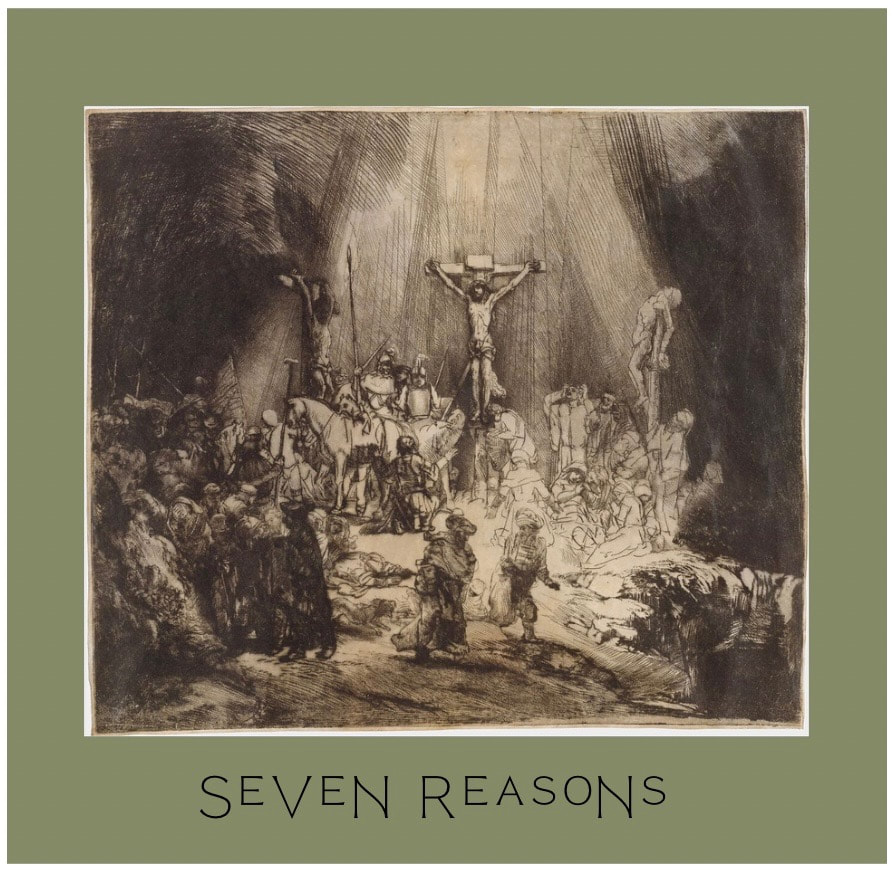|
We are in the midst of a seven part series looking at seven reasons Christ came to earth. Today we come to reason number six: to present His passion for us.
How do you know Jesus loves you? For many, they think the level of Jesus’ love for them is proportional to the number of times they have gotten what they want out of life. They feel that God loves them when there is money in the bank but suddenly question God’s love where there is more month than money left. God’s love seems real when the prayer request is answered “the right way” that day instead of having to wait weeks to find out it is a “no.” Many think this way, but if the circumstances of our lives where the only way to measure God’s love for us, then almost no one would have assurance of God’s love. We all have gone through something really hard, and the older we get the more frequent those hardships seem to come up. We have something far more sure, far more dramatic as an undeniable proof that Jesus, God Himself, loves us. Jesus has shown us the ultimate expression of love in laying down His life for us. John 3:16 tells us that it was love that motivated Jesus’ whole mission that ended in His brutal death. What else could He possibly do to prove His love for you? He did even more than die for you, He lived for you as well (as we saw in the first post of this series). Living for us wasn’t easy either. Living a life of limitation when all He had ever known was phenomenal cosmic power must have been difficult. It wasn’t even a case where He gave up being God. He never lost His power but simply chose only to use His power to fulfill the wishes of His Father (Matthew 26:53). This is an important concept to grasp because the world is constantly trying to convince you that God doesn’t love you, or at the very least isn’t very good to you if He does. As we have been studying in Sunday School, this is the very first lie that Satan gave to Adam and Eve. Satan told them that God is restrictive and mean. In other words, “He doesn’t really love you." (Sinclair Ferguson, The Whole Christ). We can begin to think this lie ourselves if we are not careful. We can convince ourselves that a lie is true, and that always has disastrous consequences. When we begin to think that God doesn’t love us, this is more than just an emotional temper tantrum. Besides being a sin in and of itself, it is beginning to sow the seeds of more unfaithfulness to God. That’s what happened to Adam and Eve, isn’t it? They believed that God wasn’t faithful to them, so they were unfaithful to God. And they weren’t the only ones. In Ezekiel 8:7-13, Ezekiel sees a vision of the elders of Israel worshipping idols. This is totally opposite to what God has commanded, but in verse 12, we get a glimpse into their hearts: “Then he said to me, ‘Son of man, have you seen what the elders of the house of Israel are doing in the dark, each in his room of pictures? For they say, “The LORD does not see us, the LORD has forsaken the land.”’” (ESV, emphasis added). What are they saying here? They are turning to idols because they believe two lies. The first lie is that God can’t see, but the second lie is more insidious: “God has forsaken this land.” Things haven’t gone their way (due to their own sin, of course), so they assume God hasn’t been good to them. Therefore, since God apparently isn’t around anymore, they might as well worship these idols. Lies bring about spiritual lust, a desire for another god. Now, we are not likely to start bowing down to statues when we are mad at God (only because that isn’t our culture), but I’ll bet that we are more willing to click on that website we know we shouldn’t go to when we are mad. I’ll bet we are more lax in our spiritual disciplines when we believe God doesn’t love us. Is this true of you? We must constantly remember that even when trials come our way, the God who brought those into your life is also the one who died for you. God isn’t taking you through something hard for His own amusement or malevolence. When something has cost you a great deal to have, you are very protective of it and won’t take any unnecessary risks with it. Nevertheless you will also do whatever is necessary to care for it. This is most powerfully felt when one has a child, and this is exactly the image that God uses of us. We are His children, and He, as a good Father, loves us. Does He discipline us? Yes. Does He bring us through hard things to grow us? Yes. Does He love us? Yes. The cross tells us so.
0 Comments
Leave a Reply. |
AuthorThis is where our Pastor posts weekly sermon manuscripts and other writings. Archives
June 2024
Categories |



 RSS Feed
RSS Feed